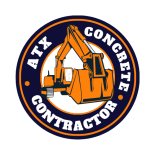Introduction
Concrete is a commonly used material in construction due to its durability and strength. However, it is not inherently waterproof. Without proper protection, concrete can be susceptible to water damage, which can lead to cracks, erosion, and other structural issues. This is where concrete sealer comes into play. But does concrete sealer make it waterproof? In this article, we will explore the benefits of using a concrete sealer and answer this important question.
Table of Contents
- What is a concrete sealer?
- Does concrete sealer make it waterproof?
- How does a concrete sealer work?
- Frequently Asked Questions
- Conclusion
What is a concrete sealer?
A concrete sealer is a protective coating applied to the surface of concrete to enhance its performance and longevity. It acts as a barrier, preventing water, oil, stains, and other substances from penetrating the concrete. Concrete sealers come in different forms, including acrylic, epoxy, polyurethane, and penetrating sealers. Each type has its own unique properties and applications.
Does concrete sealer make it waterproof?
Concrete sealers are designed to provide a level of waterproofing for concrete surfaces. While they cannot make the concrete completely impervious to water, they can significantly reduce water absorption and minimize the risk of water damage. When properly applied and maintained, a concrete sealer can help protect against moisture-related issues such as efflorescence, freeze-thaw damage, and mold growth.
How does a concrete sealer work?
A concrete sealer works by filling the pores and capillaries in the concrete surface, creating a protective barrier. This barrier prevents water and other substances from penetrating the concrete, while still allowing moisture vapor to escape. The type of sealer used will determine the level of water repellency and breathability.
Penetrating sealers, such as silanes and siloxanes, work by chemically reacting with the concrete to form a hydrophobic barrier. This barrier repels water while still allowing the concrete to breathe. On the other hand, film-forming sealers, such as acrylics and epoxies, create a physical barrier on the surface of the concrete, preventing water from penetrating.
Frequently Asked Questions
1. How long does a concrete sealer last?
The lifespan of a concrete sealer depends on various factors, including the type of sealer used, the quality of application, and the level of wear and tear the concrete is subjected to. In general, a properly applied sealer can last anywhere from 1 to 5 years. However, it is recommended to reapply the sealer every 2-3 years for optimal protection.
2. Can I apply a concrete sealer myself?
Yes, many concrete sealers are available in DIY-friendly formulations that can be applied by homeowners. However, it is important to follow the manufacturer’s instructions and properly prepare the surface before applying the sealer. If you are unsure or dealing with a large area, it may be best to consult a professional.
3. Can I apply a concrete sealer to old concrete?
Yes, you can apply a concrete sealer to old concrete. However, it is important to thoroughly clean and prepare the surface before applying the sealer. This may involve removing any existing coatings or stains, repairing cracks, and ensuring the surface is dry and free of debris.
Conclusion
While concrete itself is not waterproof, using a concrete sealer can provide a level of waterproofing and protection. By creating a barrier against water and other substances, a concrete sealer can help prevent damage and extend the lifespan of your concrete surfaces. Whether you are looking to protect your driveway, patio, or other concrete structures, investing in a high-quality concrete sealer is a wise decision.
Remember, before applying a concrete sealer, it is important to properly clean and prepare the surface. If you are unsure or dealing with a larger project, consider consulting a professional to ensure optimal results. With the right sealer and proper maintenance, you can enjoy the benefits of a waterproof and durable concrete surface for years to come.
